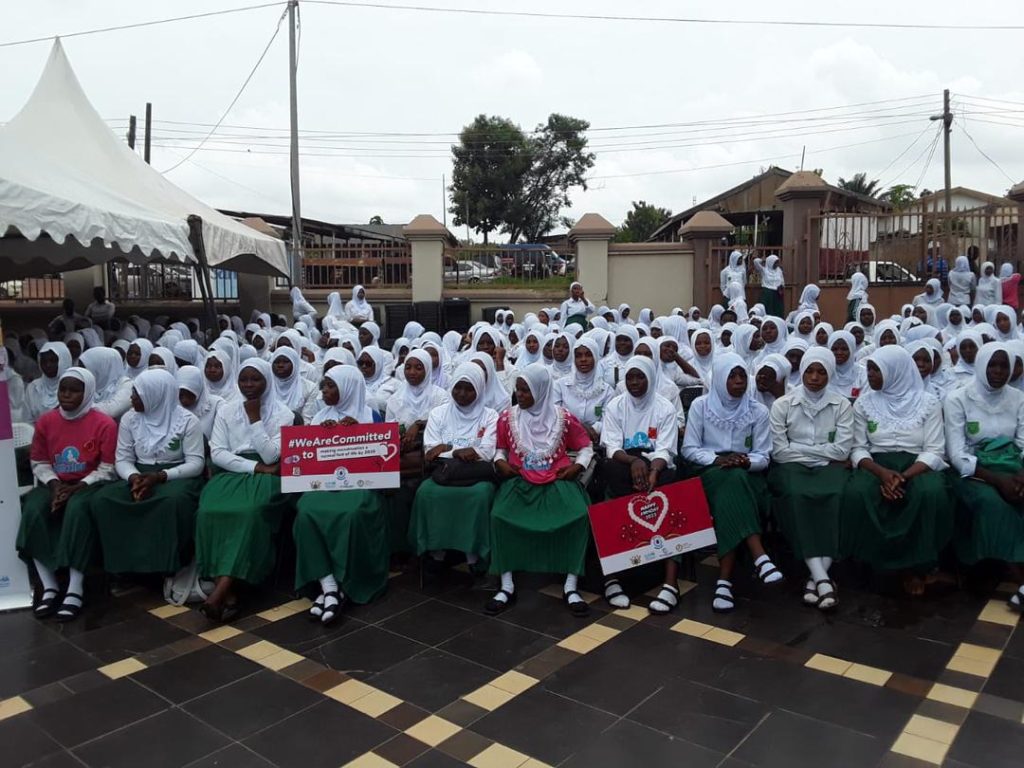By Florence Afriyie Mensah
Kumasi, May 27, GNA – Mr George Asiedu, the National Coordinator of the Greater Kumasi Metropolitan Area Sanitation Water Project (GKMA-SWP), has appealed to the Ghana Education Service and the District Assemblies to stop awarding contracts for schools that do not have toilet facilities.
He said every school should have access to improved toilet facilities with running water for use by the students.
He also advocated for changing rooms in female toilet facilities so that they can conveniently change their pads during menstruation.
Mr Asiedu who made the call at the 2023 Menstrual Hygiene Day in Kumasi, observed that access to improved water supply and sanitation facilities with appropriate hygiene management features, “are the surest way for an effective and efficient menstrual hygiene management.”
“The girl child, and women in general can manage their periods hygienically, safely and privately with dignity when they have access to appropriate household and institutional sanitation facilities and the appropriate sanitary products,” he said.
This year’s celebration was themed, “We are Committed to Educating Everyone About Menstruation.”
The GKMA used the occasion to present 200 cartons of sanitary pads to the Islamic Secondary School for distribution to the over 3000 girls of the school.
He disclosed that the GKMA had been providing household and institutional toilet since its inception in 2015 and had contributed towards the provision of over “48, 246 improved household toilets and 437 disability and gender friendly schools’ sanitation facilities.
Such facilities, she said, were equipped with adequate water supply and solid waste management features and an exclusive changing room for girls purposely for managing their periods.
Mr Asiedu said the project had supported over 206,000 school girls, representing 51 per cent of the 404,000 school pupils’ population that have benefited from the Project institution sanitation sub-component.

Dr Josephine Kyei, a Senior Lecturer at the School of Nursing of the University of Ghana, called for more education on menstruation hygiene to enable parents and teachers to provide the needed support for girls during that period of the month.
She debunked the myths that blood from menstruation was unclean and dirty, and explained that menstruation blood was just like the normal blood in one’s vein and only “become unclean and dirty when you do not observe proper menstrual hygiene.”
Dr Kyei indicated that women could pick up infections when they failed to change their sanitary regularly and did not use the appropriate sanitary products.
She asked the girls to buy sanitary products that they could afford and suitable for them and to also dispose of the used pad appropriately.
She discouraged the flushing of the used pad in the toilet as this could clog the toilets.
Nana Ahwenie-Bodom, Kokofu Dwantoahemaa, asked the girls not to feel shy during that time of the month and to feel free to talk about it.
She said menstruation was a natural phenomenon and an indication that they were complete women and should not consider themselves unclean.
According to her, menstruation was not a taboo and for that matter, should not be a hindrance for them to do anything.
GNA